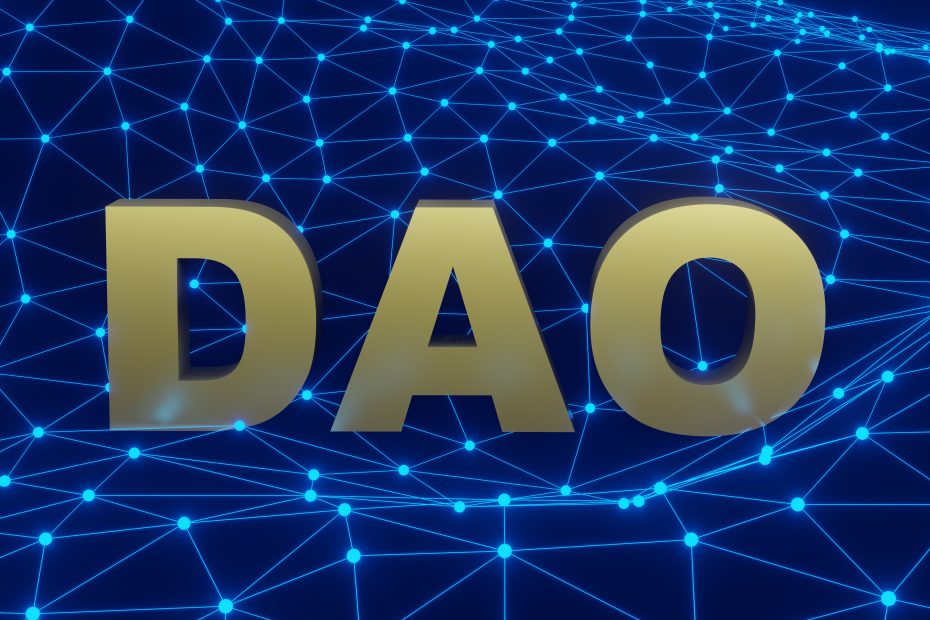What is a DAO
DAO is an acronym for decentralized autonomous organization. The term originated in the Ethereum community in 2015. A DAO is essentially software running over a decentralized network. It incorporates governance and decision-making rules and therefore it is a form of organization that is managed through rules programmed in smart contracts.
The purpose behind a DAO is to design an organizational structure that could work independently of a traditional hierarchical management. It can implement, through smart contracts, contractual obligations as well as business logic rules.
A DAO is therefore an organized system of people gathered under a single purpose/project, and thanks to the use of the blockchain and tokens, allow their participants to vote on issues. So as if they were shareholders of a company but in this case the decisions lead to approve or not a certain solution or idea.
With a DAO, most management and administrative functions and internal processes could be automated, and “value” in a given context would be distributed among virtual stakeholders via smart contracts.
A DAO is a type of application made possible by the blockchain technology.
Short history: TheDAO and the DAO hack
The first popular implementation of DAO was named TheDAO, and was launched in April 2016 on the Ethereum blockchain. TheDAO was a kind of hedge fund, where contributors could directly vote on proposed projects. It became the most successful investment crowdfunding in history at the time, raising $150 million, and concentrating 14% of all ETHER tokens issued at the time.
However, even before the token sale had concluded, several specialists expressed concerns about vulnerabilities in TheDAO’s code. More specifically, computer scientists were concerned that a bug in The DAO’s smart contract would allow money to be stolen. While programmers attempted to fix the bug, an attacker exploited the vulnerability and began stealing funds from The DAO.
MakerDAO: protocol and community governance
MakerDAO is a project that combines a DAO along with the DAI stablecoin creating a complete DeFi ecosystem that can secure loans, savings, and more on Ethereum’s blockchain smart contracts. MakerDAO is one of the largest DeFi projects in the world, and in addition to being a leader in cryptocurrencies and the DeFi movement, it was also one of the first to be launched.
The birth of MakerDAO can be attributed to Rune Christensen, currently CEO of the Maker Foundation, who decided to kick off the ambitious project in March 2015.
In 2017, DAI, the first stablecoin governed by a DAO in the entire crypto world was born and the doors were opened to a new range of financial opportunities on blockchain technology.
MakerDAO allows the user to obtain Collateralized Debt Position (CDP) loans by generating stablecoin DAIs, against a deposit of Ethereum (ETH) or other supported assets. The value that needs to be deposited must be at least 50% higher than the value of the DAIs being withdrawn.
The MakerDAO protocol and the system are governed by the community through the DAO.
DAO and NFT
DAOs have become central to the crypto space. From DeFi protocols like Uniswap (UNI) and Maker (MKR) to NFT platforms like YellowHeart and JennyDAO, and crypto gaming guilds, decentralised autonomous organisations are popping up almost everywhere.
There is also a growing number of DAOs being set up to buy NFTs. For example, JennyDAO was launched in early 2021 and attracted $7 million in funding by May 2021, all with the aim of buying NFTs and splitting their ownership.
Although each DAO operates slightly differently from the others, they generally operate through governance. Token holders vote on action proposals. So, in the case of JennyDAO, for example, stakeholders would vote on which NFTs to buy.
PLATFORMS
Those who want to create their own DAO can rely on existing platforms that through a graphical interface allow to configure the DAO according to their needs. The main platforms that provide DAO deployment as-a-service on Ethereum allow users to create their own DAO are Aragon, DAOstack, DAOhaus and Colony. All are free/open-source projects in development, in various stages of maturity.
Out of these platforms, the largest in terms of usage is Aragon.
Conclusions
So is DAO yet another buzzword or is it a valuable technology to follow? Likely the majority of today’s DAOs will be defunct in the next 2 or 3 years, nevertheless they are pioneering and testing new forms of aggregation and governance around common interests. We will learn a lot from DAOs and some of the DAOs will likely build successful businesses and communities.
The GuildS project
The Guilds project led by Uncommon Digital (the developer of Uniscrow) envisions the use of DAOs for the implementation of a blockchain-based reputation system. With the rise of blockchains, decentralized Self-Sovereign Identities and smart contracts we envision that no central authority should be in the position to control the reputation of its users. On the other end, users should be empowered with the tools to make reputation and trustworthiness an attribute portable and verifiable across different platforms. Check for more information here https://www.trublo.eu/guilds/
